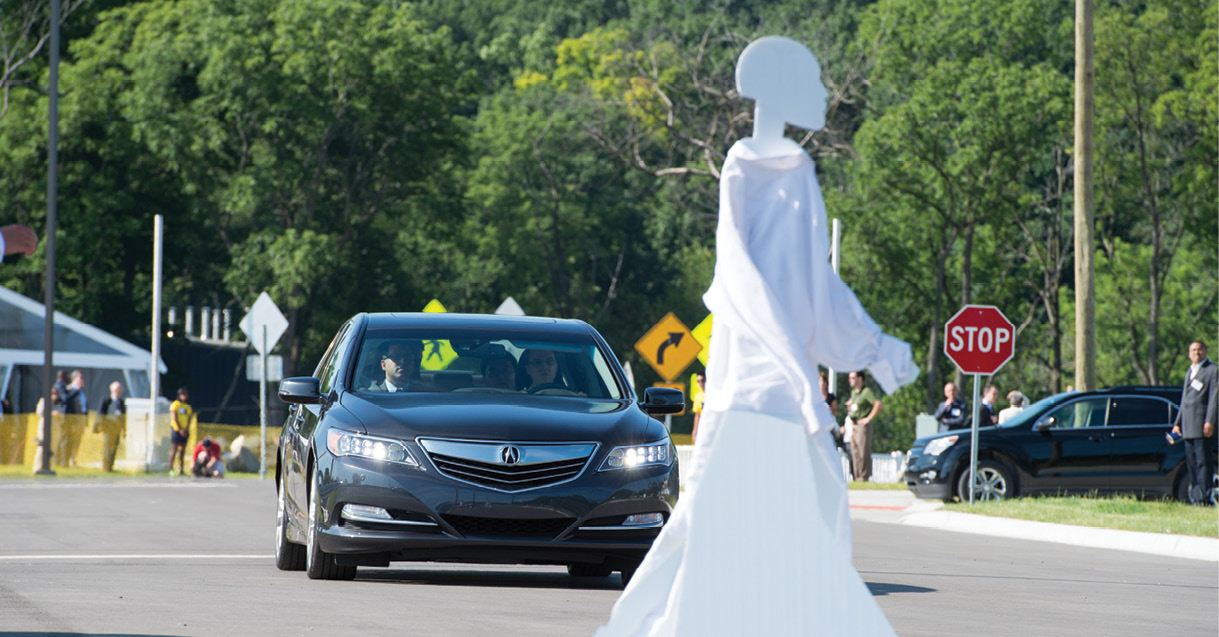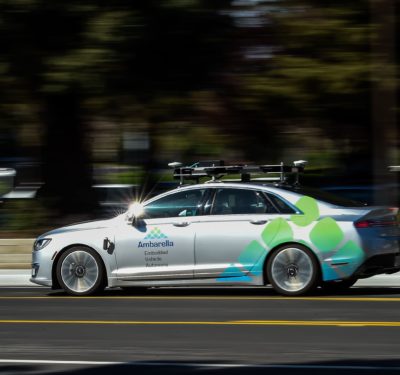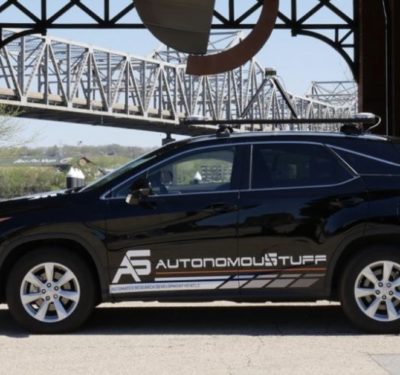
University of Michigan
In the next five years, experts say that autonomous vehicles will be entrenched in smart cities’ infrastructure to include mass transit, traffic lights, other vehicles, gas stations, homes and just about anything that requires connectivity.
“Connected and autonomous vehicles will play a significant role in the Smart Cities of the future. These cities will need ways to ease congestion, enable more efficient transportation, and reduce pollution,” said Scott Frank, Airbiquity vice president of marketing. “Connected and autonomous vehicles will serve this purpose by enabling new transportation and ownership models that take vehicles off the street and curb, like ride sharing, and their environmental benefit will be further strengthened with continued penetration of hybrid and electric drivetrains.”
Mass transit in smart cities will help spur autonomous vehicle’s growth, but it will all be about cost savings, said Bob Bilbruck, CEO of B2 Group. “In regards to mass transit, you are talking about an equation based on cost savings. These technologies in the long run will cut the cost of a human being having to perform these functions and make these functions more automated and efficient,” he said. “There will be some large upfront costs to implement these, but that cost will lessen over time and efficiency will make the up-front cost worth-while. Also new business models will emerge which will add to the margin and bottom line of companies that embrace these technologies. Companies like FedEx and Amazon that embrace drones and other autonomous vehicle technologies for delivery of goods can see a huge cost savings.
Bilbruck said that new jobs and opportunities will be created around these industries, but they will be much more tech centric. “Things like drone maintenance, servicing – the cost savings in mass transit and delivery will drive the speed of adoption of these technologies,” he said.
While some industry experts contend that mass transit applications will bring autonomous vehicles to the forefront faster than the development of self-driving passenger cars, Bilbruck contends it is still about cost and time saving.
“Traffic congestion, time in car, and time usage in car will also drive the adoption speed of these technologies coming to market quicker. People will be able to do more while they are commuting and also cars will be more network connected which means more services will be beamed to their car,” he said. “This will add to efficiency and cost savings, and it will create a whole new revenue source for the car companies and their partners.
How will these opportunities involve smart cities? Bilbruck believes that coordination of the smart grid will have to interact with all technologies. “Smart Cities will be the heart pumping out to the connected technologies and bringing all of these solutions together. High speed connections will be essential in these technologies running at the speed needed for performance and smart cities will need to have this infrastructure built in to provide these speeds,” he said.
Michigan’s Mcity Tests Connected and Automated Research Vehicles
Outside of Carnegie Mellon’s efforts in Pittsburgh, the University of Michigan’s Mcity has become a hub of testing autonomous vehicles in a simulated smart city environment. The university says that while other institutions offer similar autonomous research vehicles, it is the only campus that operates a high-tech, real-world testing facility.
The university’s Mobility Transformation Center (MTC), which operates Mcity, announced its first open connected and automated research vehicles, or CAVs, for testing. One is a Lincoln MKZ sedan, powered by Portland, Ore.-based PolySync’s autonomy platform. In addition, two Kia Soul crossover vehicles will be tested with a “drive by-wire” control unit, the university said.
The CAVs are equipped with sensors including radar, lidar, and cameras. MTC is adding dedicated short-range communications capabilities to the vehicles to allow development of connected vehicle applications, the university said.
“By providing a platform for faculty, students, industry partners and startups to test connected and automated vehicle technologies, open CAVs will break down technology barriers and dramatically speed up innovation,” said Carrie Morton, MTC deputy director, in a prepared statement. “We’re democratizing access to automated vehicle technology for research and education.”






